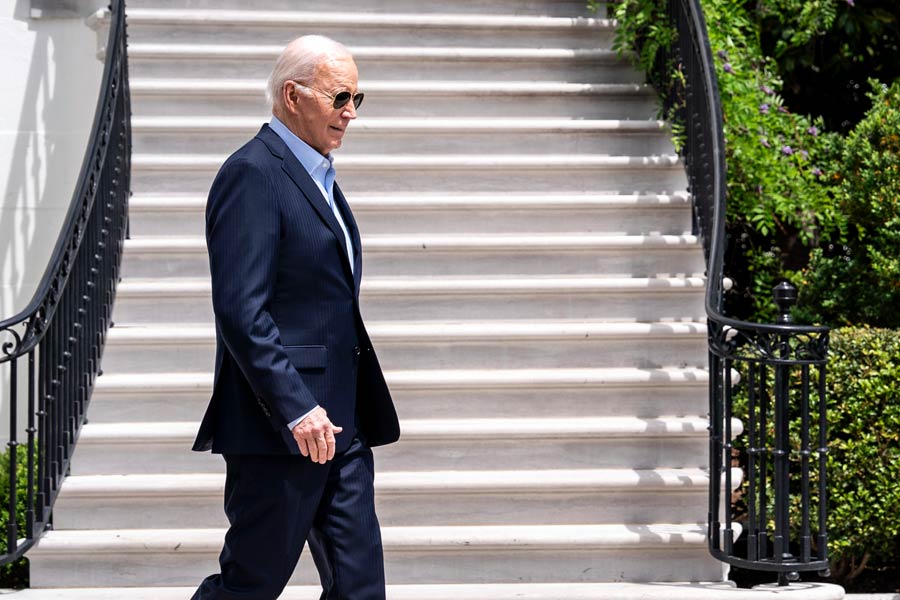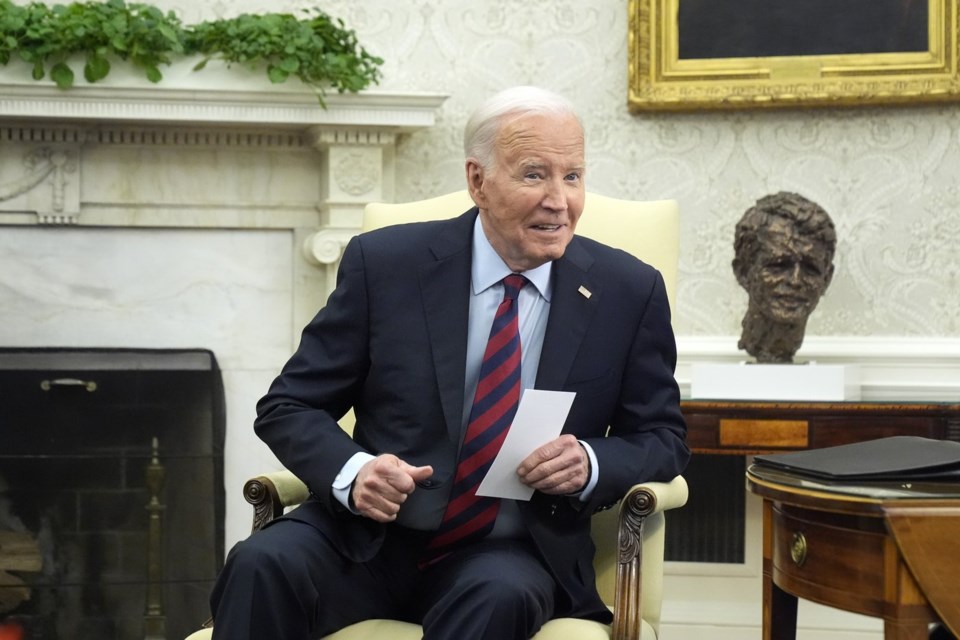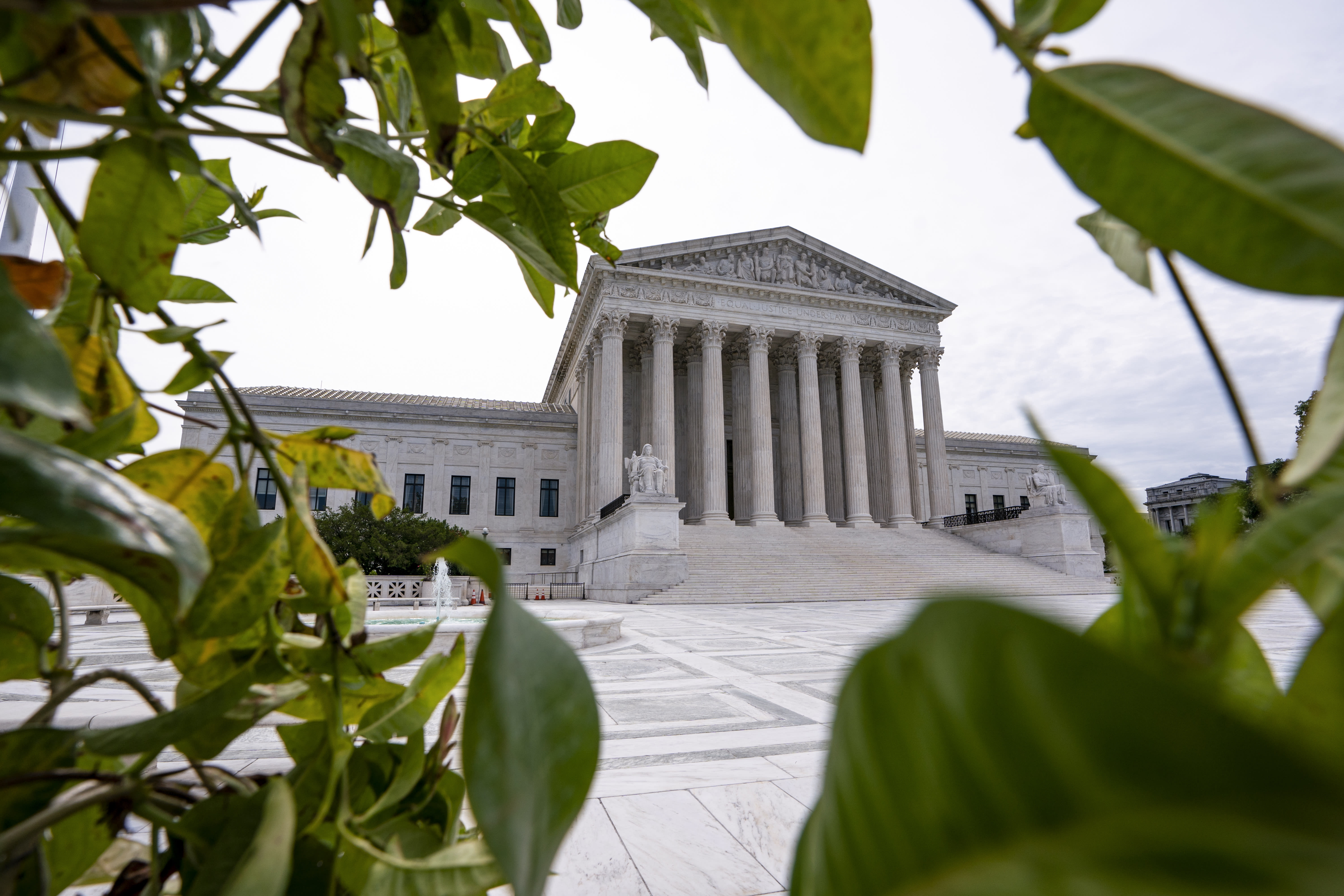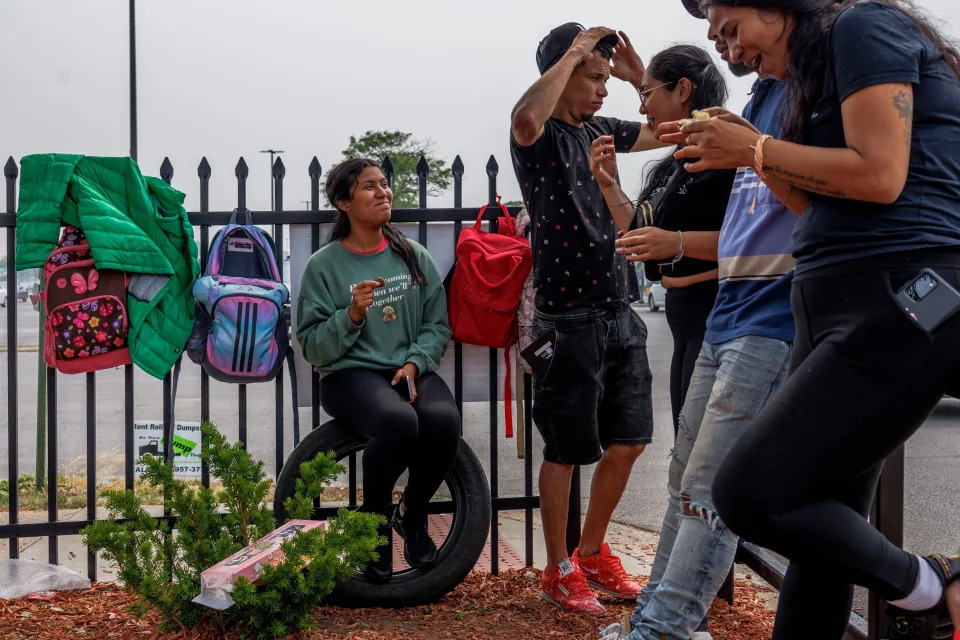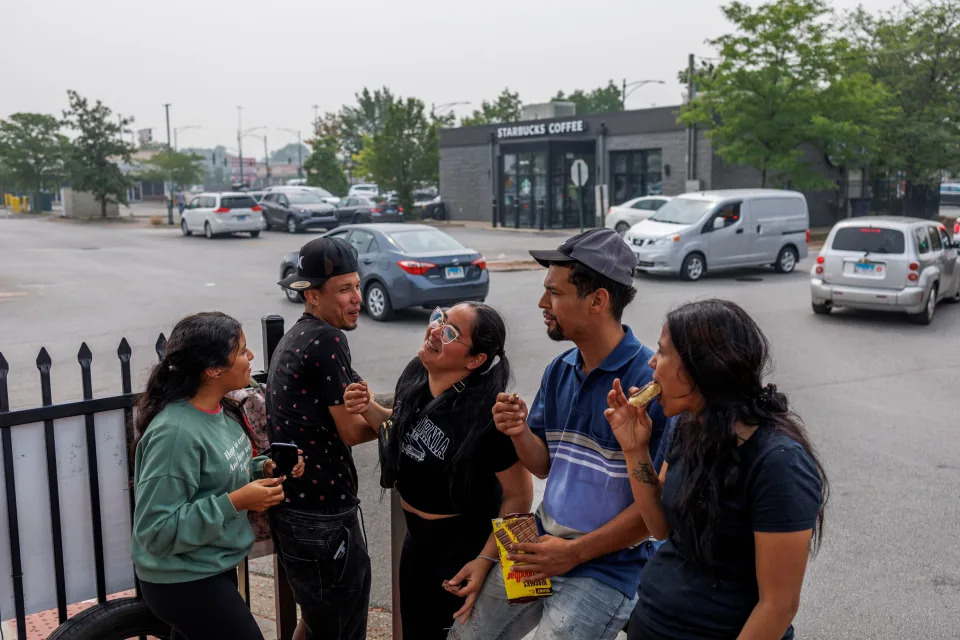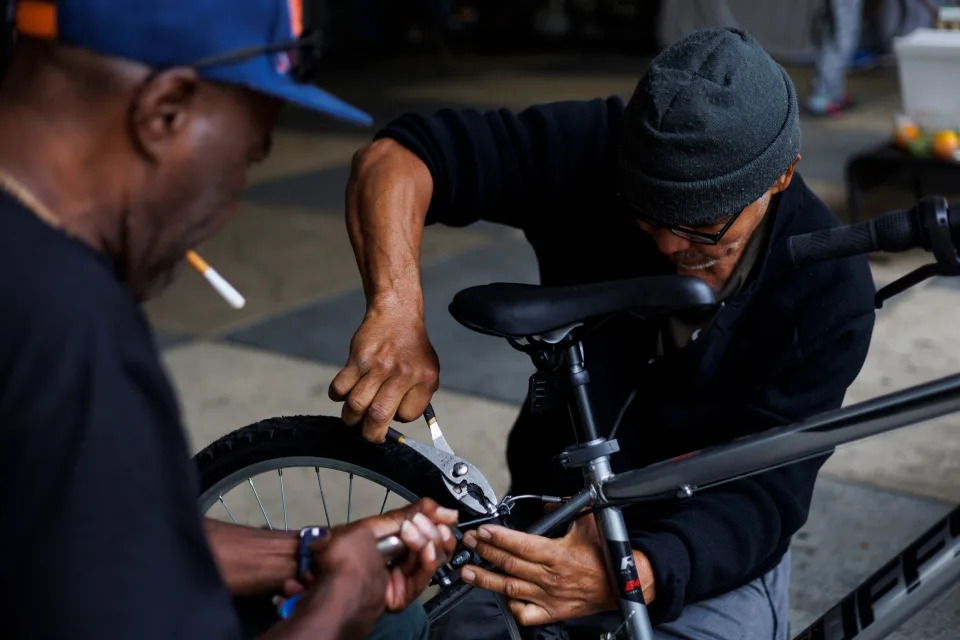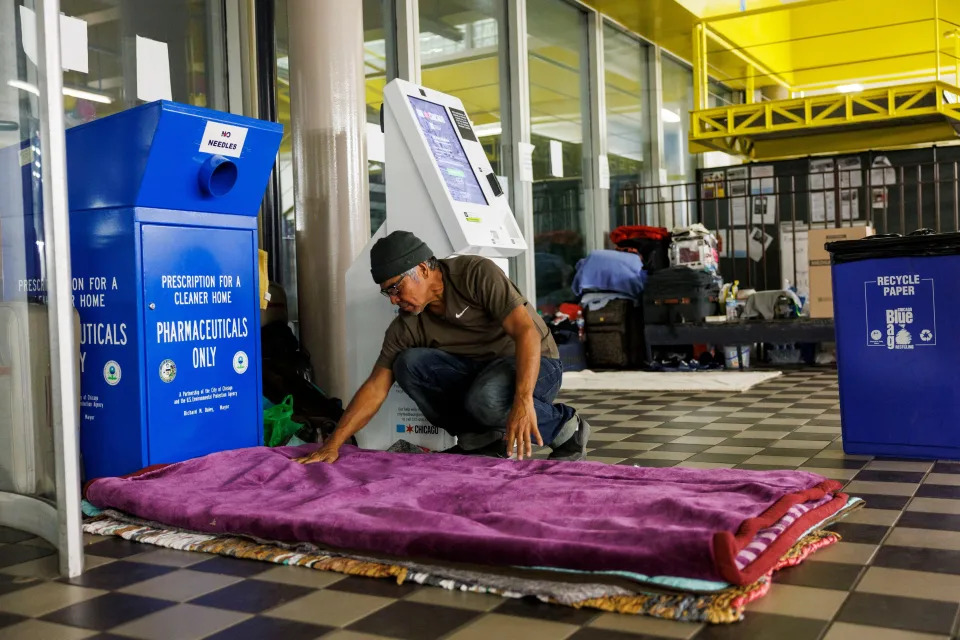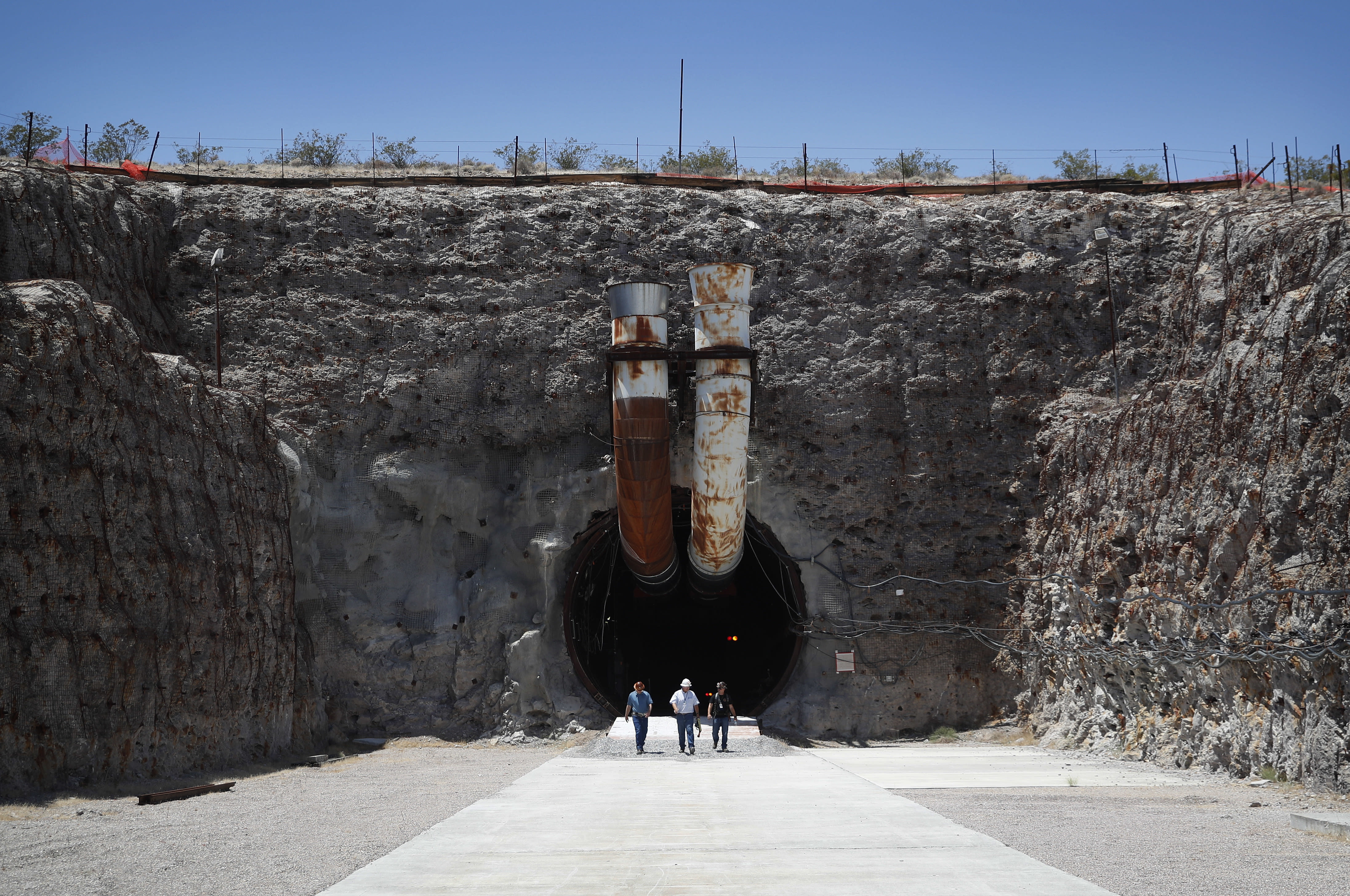Niraj Warikoo, Detroit Free Press,USA TODAY•January 10, 2020
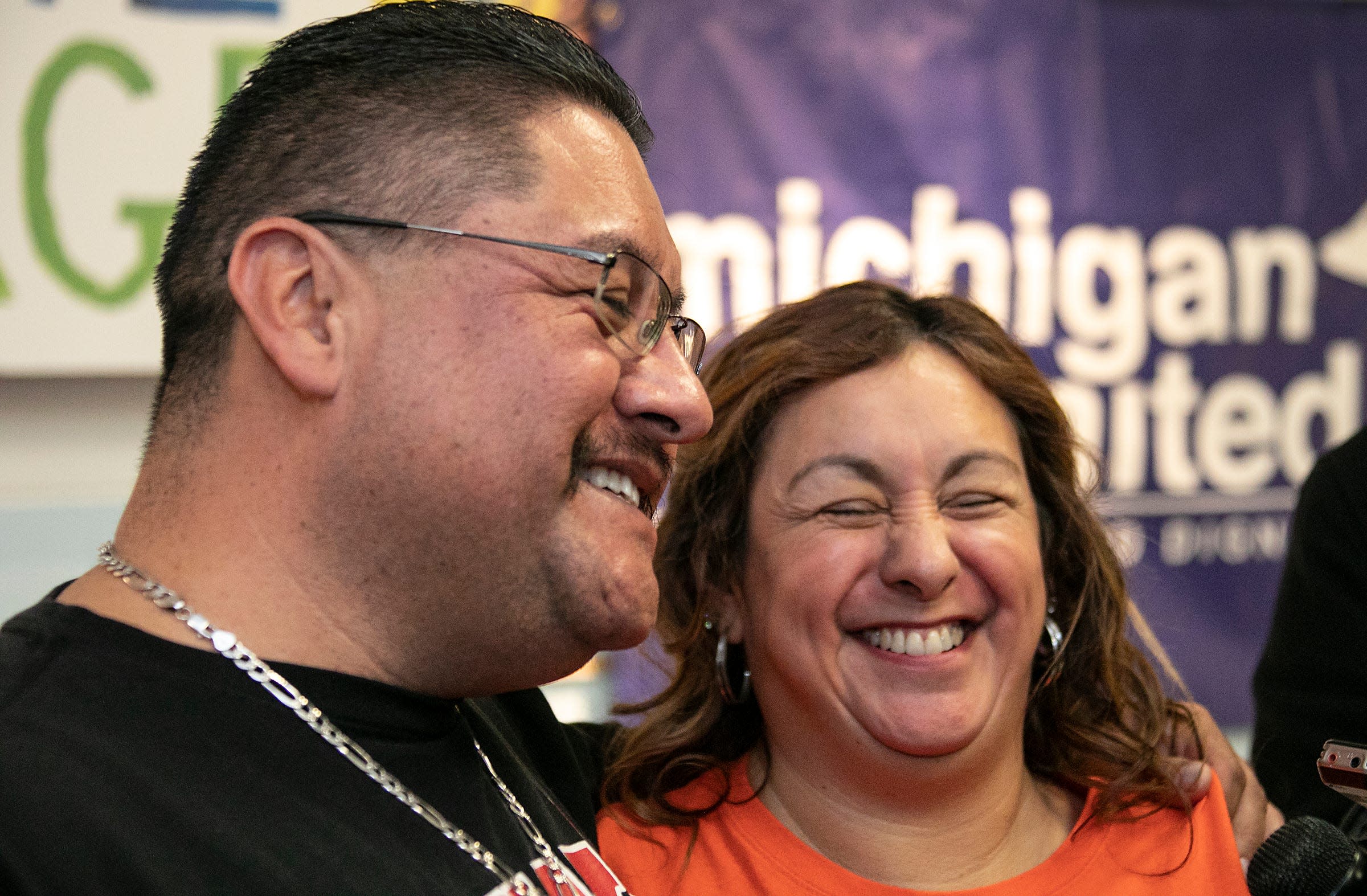
‘Every day I was praying’: Detroit dad deported after 30 years returns home to USMore
Jorge Garcia, 41, shares a laugh with his wife Cindy Garcia,47, after a press conference was held with Rep. Debbie Dingell, D-Dearborn, to welcome the once deported Jorge Garcia back to the U.S. and his family at the Lincoln Park Library Friday, Jan. 10, 2020.
DETROIT – After almost two years in Mexico, Jorge Garcia – whose deportation in January 2018 became a national story after a Free Press report – is back home in Michigan.
Garcia, 41, arrived at Detroit Metro Airport last month on Christmas Day, hugged by his two children and wife shedding tears of joy, his family members said.
"I'm really happy" to be back, Garcia, of Lincoln Park in suburban Detroit, said Friday. "The last year was very stressful, it got to the point where my blood pressure was very high, I was getting anxiety attacks. ... I see it like a nightmare ... something like a bad dream."
Garcia was granted two waivers by U.S. immigration officials with the Department of Homeland Security, said his attorney Mayra Lorenzana-Miles. He is now a lawful permanent resident of the U.S., getting his official card this week, and is on a path to U.S. citizenship in a few years, she said.
"Welcome Home Jorge," read a large banner inside a room at the Lincoln Park public library on Friday afternoon, where supporters gathered to celebrate his homecoming.
The Free Press reported on Garcia's deportation on Jan. 15, 2018, capturing his emotional farewell at Detroit Metro Airport as tearful family members hugged him one last time before he was escorted through security by a federal immigration agent. After 30 years living in the U.S. with no criminal record, he was kicked out of the country.
The Free Press story was picked up my numerous media outlets, prompting a national debate over immigration enforcement in the Trump administration. The Free Press later went to Mexico to report on Garcia's struggles in an unfamiliar country.
Garcia was born in Mexico and was brought to the U.S. when he was 10 years old by an undocumented relative. He was too old to qualify for Deferred Action for Childhood Arrivals, missing the age requirement by just one year. Since 2004, he and his family have been trying to obtain legal status, hiring attorneys and following the law.
Garcia was previously ordered removed from the U.S., but had gotten stays of removal. That changed after Donald Trump became president as authorities toughened immigration enforcement. In November 2017, Garcia was ordered to leave.
ICE officials have defended his deportation, saying that Garcia was "an unlawfully present citizen of Mexico" who "was ordered removed by an immigration judge in June 2006."
Garcia had no criminal record, worked as a landscaper, and paid his taxes, said advocates and U.S. Rep. Debbie Dingell, D-Mich.
"He never got a traffic ticket," Dingell said at the homecoming celebration Friday. "He worked hard. ... He had never done anything wrong."

Garcia got an interview in February at an American consulate office in Mexico, but was denied, said his wife, Cindy Garcia. His waivers were then approved in September, said his attorney.
Cindy Garcia was hoping he would be home in time for Halloween or maybe Thanksgiving, but authorities kept on asking for paperwork such as medical history, she said.
"The whole two years, we had PTSD, anxiety, depression," Cindy said.
"It was anxious not knowing when he could come home, your hopes resting on the timeline of government officials," she said.
"We just didn't know when" he could come home, she said.
Finally, he was approved just a few days before Dec. 25.
Cindy then bought him a plane ticket.
"I was on my way to the airport" in Mexico City, Jorge said, recalling his trip back to the U.S. "But I was in denial. I was thinking it wasn't true."
Deported after 30 years in US: Father still stuck in Mexico without wife and kids
It wasn't until he got the necessary stamp after arriving in Detroit Metro Airport and seeing his family greet him that he finally did breathe a sigh of relief.
Cindy Garcia said she had told the children they were going to the airport to pick up an uncle because she wanted it to be a surprise and because she was still uncertain whether he would make it.
"I was surprised," said his son, Jorge Garcia Jr., 14, recalling the Christmas Day scene. "I started crying when I saw him."
Being without a father at home for two years "felt weird," he said. "It's been hard, not having a dad."
His daughter, Soleil, said: "When I first saw him, I was crying because I was happy."
Ripped apart by deportation: The Garcia family struggles to cope
Soleil had to celebrate her quinceañera (15th birthday), a rite of passage for many Mexican American teenage girls, without her father. There's a traditional father-daughter dance she had to do instead with a grandfather.
"It was just very sad knowing that he wasn't here with us during certain events," she said.
The Garcias thanked Dingell and the UAW Local 600, which Cindy is a member of and which was supportive of them.
Dingell said "there are too many families that are being torn apart."
Too old for DACA: Man who spent 30 years of his life in U.S. is deported
Pastor Jack Eggleston of Unity Lutheran Church in Southgate spoke at the homecoming at the library, introducing the Garcias.
"This has been a long ordeal," he said. "But the community has been aching with them."
Cindy said the two years without Jorge was emotionally tough for the family, with her and the two kids going through tough moments.
"My children have suffered," she said. "We screamed and yelled" at times, "but we got through this."
Meanwhile, Jorge was living with an aunt about an hour from Mexico City but didn't have any social connections that could help him establish a new life.
Now, Cindy said she intends to continue fighting for others who were in her situation.
Cindy told the Free Press: "I am going to fight more than ever now for these broken immigration laws to be fixed so that no other family has to endure what we did because I know the feeling and I don't want any other children separated from their families because it's a hardship on the kids, on the parents, the whole family in general."

While in Mexico, Jorge bought a chain and medallion with an image on the front of Jesus Christ and on back of Our Lady of Guadalupe, an iconic figure for many Mexican Catholics.
He said his faith gave him strength over the past two years.
"Basically, every day I was praying," Jorge told the Free Press. "I was praying for something to change. And it did."
Follow Niraj Warikoo on Twitter: @nwarikoo
This article originally appeared on Detroit Free Press: Deported in 2018, Jorge Garcia is back home after two years in Mexico

